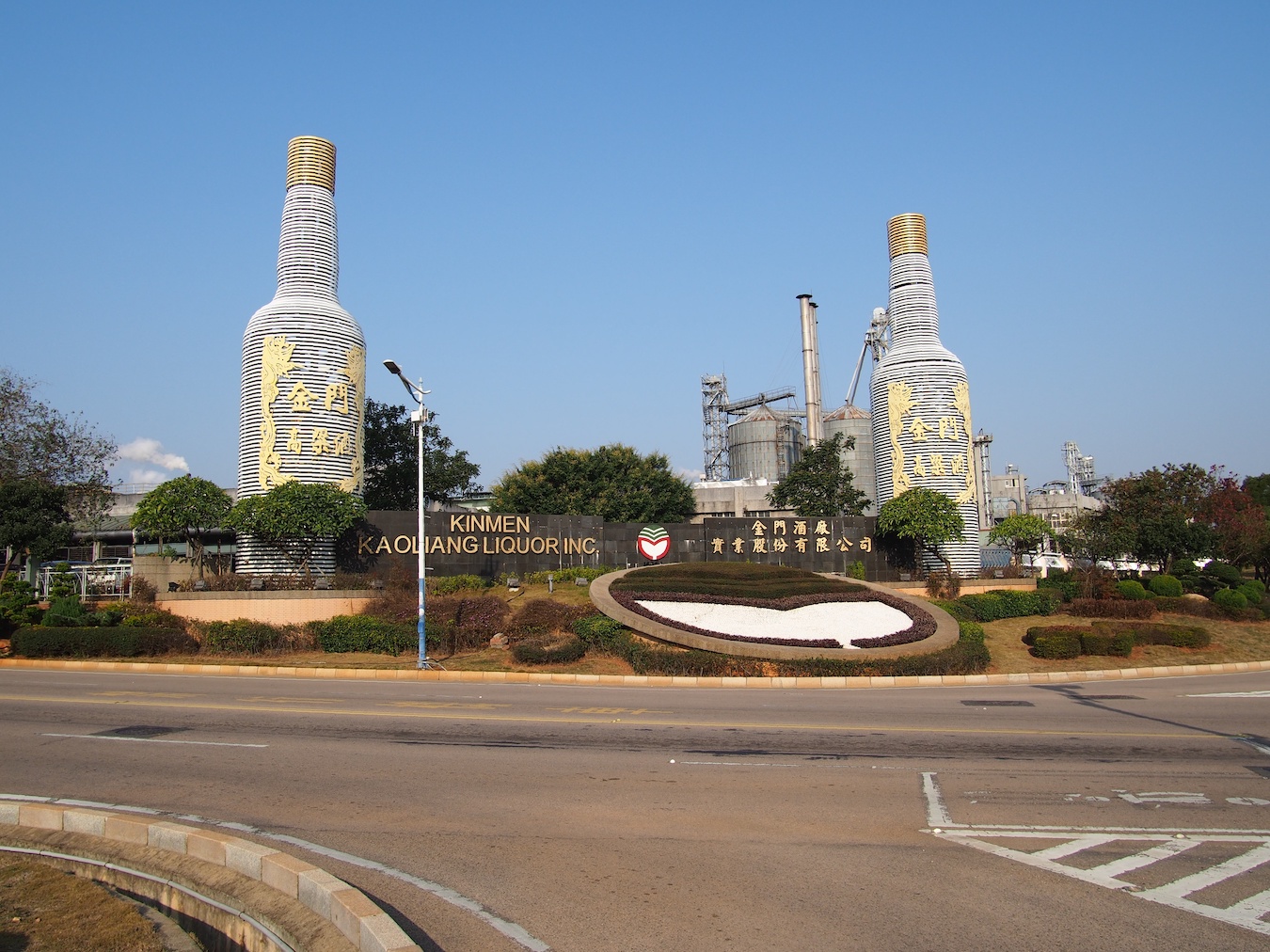by Brian Hioe
語言:
English
Photo Credit: Tianmu Peter/WikiCommons/CC BY 3.0
CHINA ANNOUNCED a series of import bans on Taiwanese products late last week. These are primarily seafood and alcoholic and non-alcoholic drinks, such as beer and liquors.
The seafood bans were announced on December 8th, with squid bans receiving the most attention. This means the potential loss of a 3.68 billion NT market for squid, with 75,152 tons of squid sold to China in 2021. However, 105 Taiwanese companies are affected, with other fisheries products blocked including fourfinger threadfin, Pacific saury, and skipjack tuna. Squid, fourfinger threadfin, and Pacific saury exports to China constituted 166.5 million USD in 2021.
Two days later, it was confirmed that beer and liquors, as well as other products, were also banned by China. The most prominent of these may be Taiwan Beer and Kinmen Kaoliang, two of Taiwan’s most recognizable alcohol products, which fall under the purview of the state-owned Taiwan Tobacco & Liquor Corporation and the Kinmen Kaoliang Liquor Incorporated. However, other companies affected include Win Shan International Company, Taihu Brewing, which is best known for craft beer, the Legend Brewery Company, and King Car Food Industrial Company, which is best known for Kavalan Whiskey. This is expected to lead to a loss of around 1 billion NT.
 Taiwan Beer advertisement on the side of a streetcar in Hong Kong. Photo credit: Oche33Pi WLAM/WikiCommons/CC
Taiwan Beer advertisement on the side of a streetcar in Hong Kong. Photo credit: Oche33Pi WLAM/WikiCommons/CC
Overall, 123 of 354 beverages from Taiwan registered for export to China were affected, with other companies including HaySong, Oceanic Beverages, Taisun Enterprise, Uni-President Enterprises, Vitalon Foods, and King To Nin Jiom Medicine. Taiwan sold 250 million USD worth of alcoholic beverages and 43.4 million USD worth of non-alcoholic beverages to China in 2021, which will be affected.
Currently, 2,409 Taiwanese food and beverage companies have exports to China temporarily suspended, while 31 are permanently suspended. 792 companies are still able to export to China, at least according to listings by the Chinese government’s General Administration of Customs. Companies face losses for December with regard to imports that were planned to China.
The bans from China were primarily on the basis of insufficient documentation. It was claimed that for 621 companies, documents did not meet specifications, for 499 companies that the manufacturing license did not meet specifications, and that the company application did not meet specifications for 396 companies.
Taiwan’s Food and Drug Administration has called on the Chinese government to provide further information, though it states that it may not receive an answer. For its part, the Chinese government claims to be carrying out regulations that were announced in April 2021 and started to take effect in January 2022. Affected Taiwanese companies state that their registrations were still valid until 2026 or 2027 in some cases and that they turned in extra documentation in response to requests from the Chinese government, but that overall, it has become more difficult to export to China in past years.
According to the Mainland Affairs Council, 178 companies involved in fisheries products were told to submit more documents in August, but did not receive any response after providing them. On Friday, the FDA stated that China had claimed it rejected 346 of 465 items based on the follow-up documentation. Sometimes it was claimed that more information was needed on the origin of products, or that logos did not correspond to standards.
The Taiwanese government has suggested that it may take the matter to the World Trade Organization (WTO) as a response to the unilateral import bans. At the same time, it is possible that China would use the WTO as an avenue for further retaliatory measures against Taiwan, so there are some risks in this strategy.
It is probable that some companies will call on the government to assist in developing or providing measures to assist in pivoting to new markets. In response to such calls, the Ministry of Economic Affairs has stated that it will assist with advertising, provide training, and seek to develop new markets. For example, it has been suggested that by processing Pacific saury bones, this can allow for exports to the North American and European markets. Or Taiwanese seafood can transition to Southeast Asia as a market.
 Kinmen Kaoliang factory. Photo credit: rheins/WikiCommons/CC BY 3.0
Kinmen Kaoliang factory. Photo credit: rheins/WikiCommons/CC BY 3.0
Some pan-Blue politicians, such as former Taipei mayor Ko Wen-je, have criticized the Chinese government for its actions, suggesting that this will contribute to negative views of China in Taiwan. Other pan-Blue politicians, such as current KMT chair Eric Chu and former president Ma Ying-jeou, have sought to put the blame on the Tsai administration for deteriorating cross-strait relations, while Kinmen KMT legislator Jessica Chen has stated that she intends to negotiate with China over the issue.
It is more of a question as to what China intends through continual export bans targeting Taiwanese products, with previous bans targeting everything from pineapple to snacks, grouper, and sand. A recurring theme of these bans was also that products with high symbolic value, such as Taiwanese pineapple or iconic snacks as Guai Guai, or in which the Taiwanese industry placed high hopes on the Chinese market, such as with grouper, were targeted. It is possible that China hopes to pressure Taiwanese companies, particularly those involved in fisheries and agriculture, so that they throw support behind the KMT. Farmers and fishermen have traditionally been an influential voter bloc in Taiwan.
Nevertheless, it is also possible Chinese measures targeting Taiwanese companies lead to China being seen as an increasingly risky market in which companies may be suddenly targeted by Chinese authorities on political grounds, leading to decoupling from the Chinese market. If so, paradoxically enough, this would remove one of the key levers by which China seeks to economically influence Taiwan.

